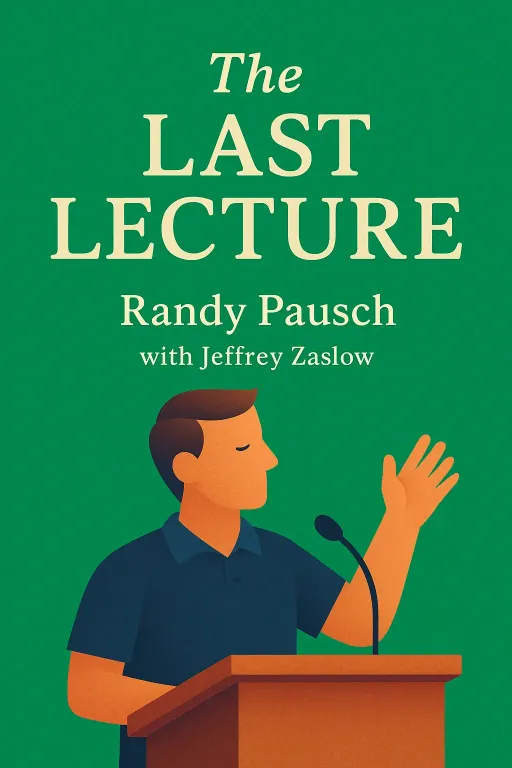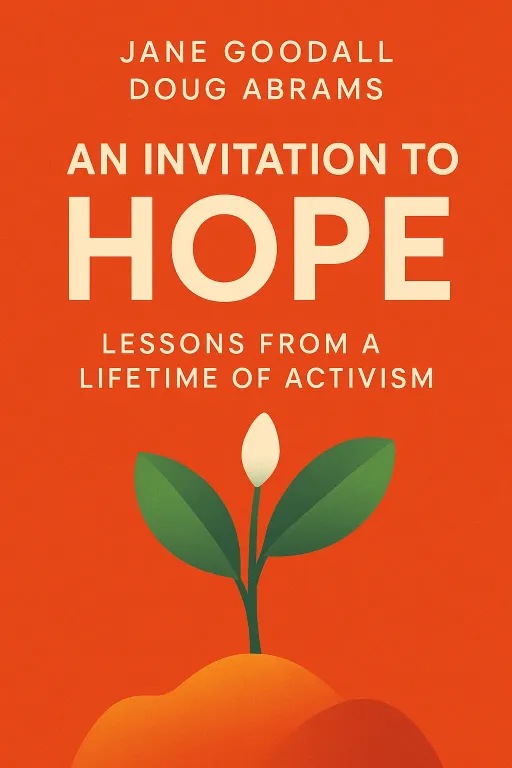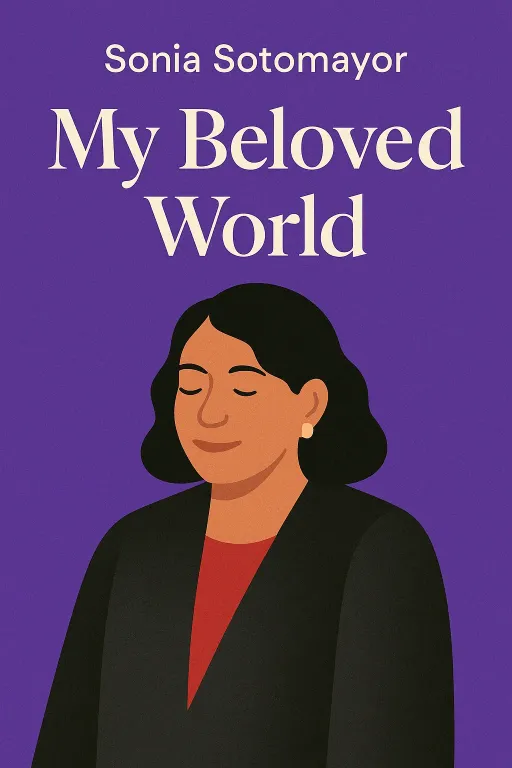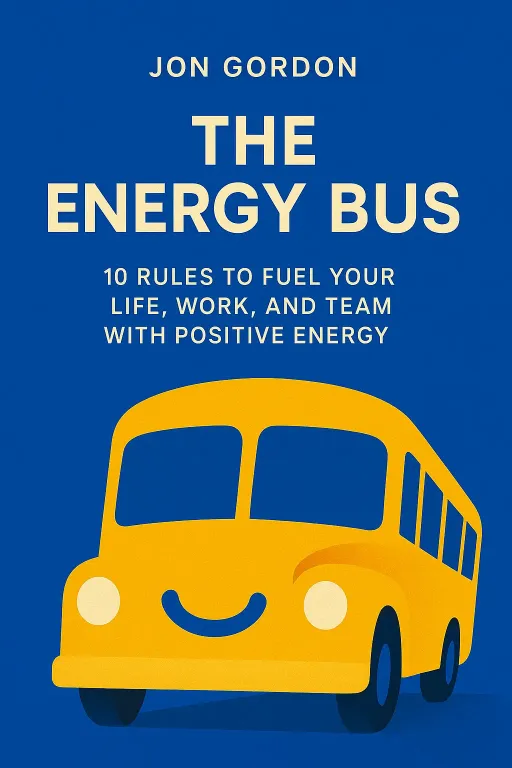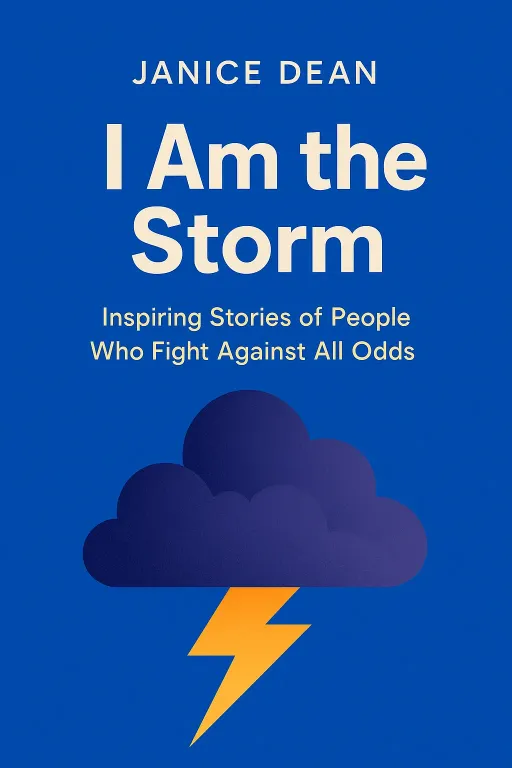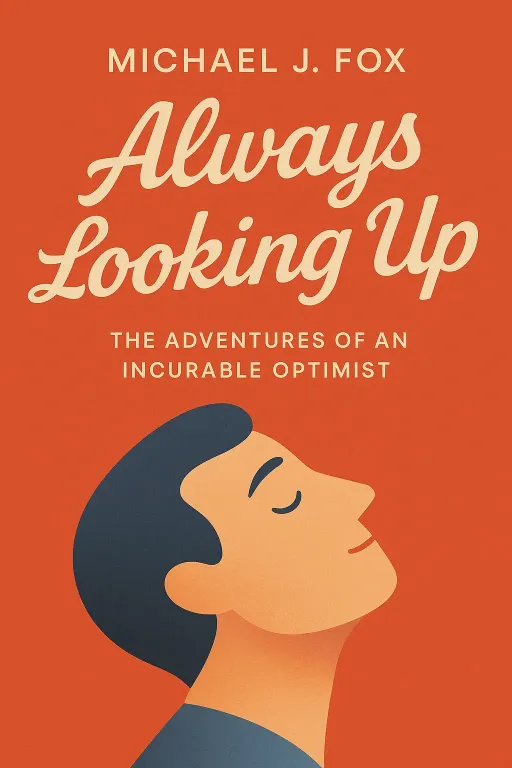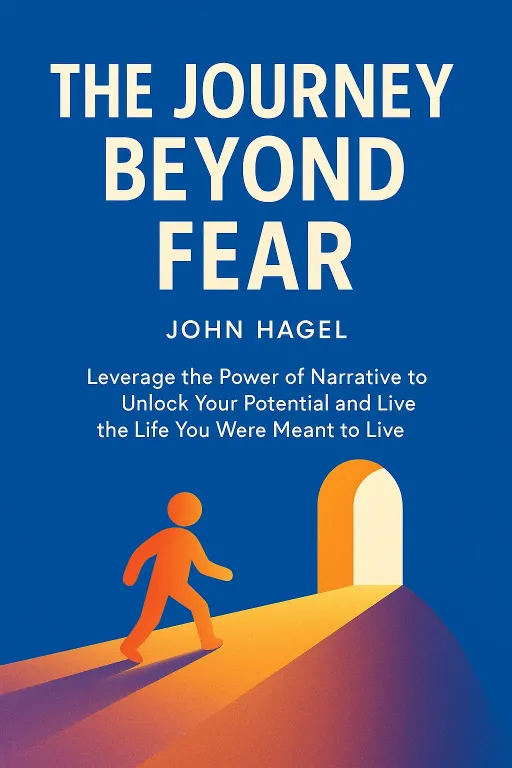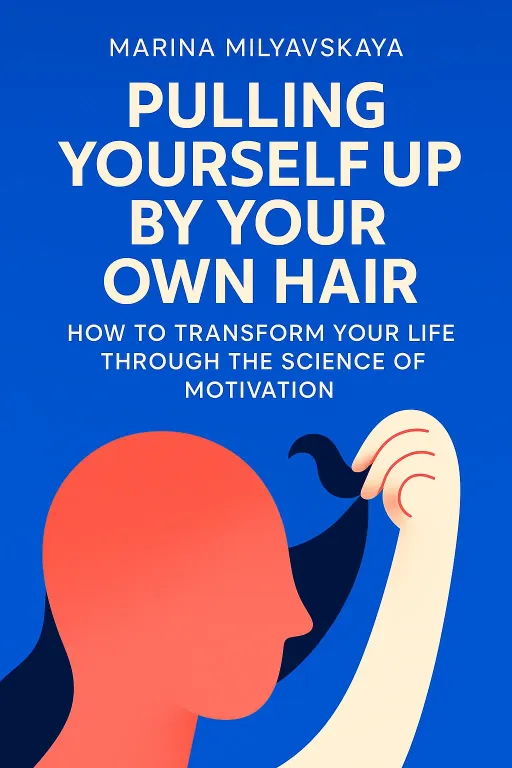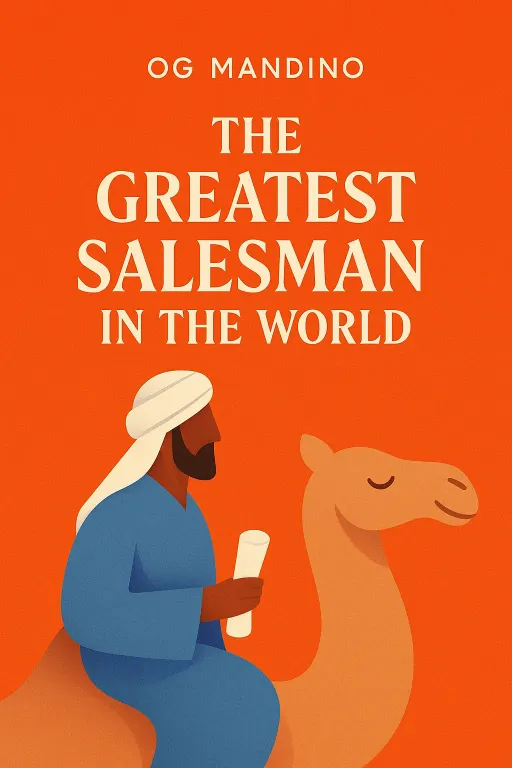
Why You Should Be a Slave
13 minGolden Hook & Introduction
SECTION
Michelle: Most self-help books tell you to find your unique talent. This one, a massive bestseller, says your talent is irrelevant. It argues you should become a slave. Mark: A slave? That’s a strong word. A slave to what? Michelle: A slave to your habits. And that, according to the book, is the secret to becoming the greatest in the world. Mark: Wow. Okay, that is not the advice I was expecting. That’s a pretty intense way to frame self-improvement. What book is this? Michelle: That's the wild premise of The Greatest Salesman in the World by Og Mandino. It’s this tiny book from 1968 that has sold millions and millions of copies and has this almost legendary status in sales and motivational circles. Mark: And Mandino's own story is just as dramatic. This wasn't some academic in an ivory tower. He was a WWII bomber pilot who came home, struggled with severe alcoholism, and was on the verge of suicide before he discovered self-help books in a library and completely turned his life around. Michelle: Exactly. He hit rock bottom. So this book is less a manual and more a testament, born from his own desperate search for a system that worked. Which brings us to the very unique way he chose to tell his story. He doesn't just give you a list of rules. Mark: Right, he wraps it in this ancient, almost biblical-sounding parable. Why do that? Why not just write a straightforward guide? Michelle: I think that’s the first piece of genius here. He understood that principles are forgettable, but stories stick. He knew that for an idea to truly change you, it has to get past your cynical brain and hit you in the heart. And that’s what the story of Hafid is designed to do.
The Parable as a Blueprint: From Camel Boy to Legend
SECTION
Michelle: The book opens with Hafid, who is, at the end of his life, an incredibly wealthy merchant—the titular "greatest salesman." But the story quickly flashes back to his beginning. He was a poor, anonymous camel boy, with no status, no skills, just a burning ambition to be more. Mark: The classic underdog. It’s a relatable starting point. We’ve all felt like the camel boy at some point, wanting more but not knowing how to get there. Michelle: Precisely. So he goes to his master, a phenomenally successful merchant named Pathros, and basically says, "I don't want to tend camels forever. I want to be like you. I want to be a salesman." Mark: And what does the wise old master do? Give him a pep talk and a sales territory? Michelle: Not even close. Pathros is skeptical. He warns Hafid that ambition is one thing, but the reality of sales is lonely and full of failure. But he sees a fire in the boy's eyes, so he agrees to give him one chance. A single test. Mark: Okay, I'm hooked. What's the test? Michelle: This is where the story gets really interesting. Pathros gives Hafid one single, beautifully crafted, expensive red robe. And he tells him to go to the nearby town of Bethlehem and sell it. Mark: Bethlehem? Wait, I know that name. But from the book's description, it’s a poor, struggling village. He’s sending a rookie salesman with a luxury item to a place where no one can afford it. That sounds like a setup for failure. Michelle: It is a setup! It’s a brutal, almost cruel test of determination. And for three days, Hafid fails spectacularly. He gets doors slammed in his face. People laugh at him. He tries every angle, but nobody is interested. He’s sleeping in the hills to save money, he's hungry, and his confidence is completely shattered. Mark: This sounds brutal. It's the classic sales rejection nightmare. I can feel the anxiety just hearing about it. He must be ready to just give up and go back to the camels. Michelle: He is. On the fourth night, defeated, he takes shelter in a cave just outside the village to escape the cold. He's ready to admit he's a failure. But as his eyes adjust to the dark, he sees he's not alone. In the back of the cave, there's a young couple huddled together. And the woman is holding a newborn baby. Mark: Oh, wow. Michelle: The baby is shivering, turning blue from the cold. The parents have nothing to wrap him in. And Hafid is standing there, holding this beautiful, warm, expensive robe. His one and only shot at proving himself, at changing his life, at earning the money he so desperately wants. Mark: Don't tell me he does what I think he does. Michelle: He does. He looks at the baby, then at the robe. And after a moment of internal conflict, he walks over, wraps the newborn in the luxurious red robe, and leaves without a word. He sacrifices his only asset, his only hope for success, for a moment of pure, selfless compassion. Mark: Wow. So he fails the test. He gives away the one thing he was supposed to sell. He’s going back to Pathros empty-handed. That’s heartbreaking. Michelle: Or did he fail? This is the twist. As he walks back to the caravan, he looks up and sees an impossibly bright star hanging in the sky, seemingly right over the cave he just left. It follows him all the way back. When he confesses his "failure" to Pathros, the old man’s eyes are fixed on that star. Pathros’s own eyes, which had been failing him, suddenly clear. He looks at Hafid and says, "Sleep in peace, for you have not failed." Mark: What does that mean? How did he not fail? Michelle: Because the test was never about selling the robe. It was a test of character. Pathros was waiting for a sign to know who to pass his secrets on to. And Hafid's act of selfless generosity, choosing love and compassion over personal gain, was the sign. That act proved he was worthy of receiving the real secret to success. Mark: That’s a powerful reframe. The idea that the most important qualification for success isn't skill or ambition, but your fundamental character. Your heart. Michelle: Exactly. It’s the core philosophy of the book. True success, the kind that lasts, isn't built on clever tactics. It's built on a foundation of love and integrity. And only after proving he has that foundation is Hafid given the key to everything: a small wooden chest.
The Scrolls as Software: Rewriting Your Inner Code Through Habit
SECTION
Mark: Okay, so the story is powerful. I get the emotional core. But how does he actually become the greatest salesman? It can't just be from one good deed. What's in the chest? Gold? A map? Michelle: Better. Inside the chest are ten ancient scrolls. And these scrolls contain the system, the operating principles for becoming the greatest salesman in the world. This is where the book pivots from a parable to a practical, if unusual, program for self-transformation. Mark: So this is the 'how-to' part. What's the first instruction? Michelle: The first scroll, Scroll Marked I, is the foundation for all the others. It begins with the declaration, "Today I begin a new life." And its core instruction is this: "I will form good habits and become their slave." Mark: Become their slave? There's that word again. That sounds so passive, almost robotic. And honestly, this is the part of the book where some readers check out. They find it a bit... corny, right? The repetitive reading, the almost dogmatic devotion. Michelle: It’s definitely a point of criticism. The instructions are very rigid. Mandino says you must read each scroll, three times a day—once upon waking, once at midday, and once before sleeping—for thirty consecutive days before moving to the next. If you miss a day, you have to start over. Mark: That’s incredibly demanding. It sounds less like self-help and more like a monastic ritual. Michelle: I think it helps to reframe it. Don't think of it as corny self-help. Think of it like cognitive-behavioral therapy or installing new mental software. Mandino, drawing from his own battle with alcoholism, understood that bad habits are deeply ingrained. You can't just wish them away. You have to systematically and relentlessly overwrite them. Mark: So the repetition isn't just for memorization, it's for internalization. It's like you're running a new line of code through your brain over and over until it becomes the default program. Michelle: Exactly. You're literally rewriting your subconscious. And the first lines of code are powerful. After establishing the need for good habits in Scroll I, Scroll II gives you the first core habit: "I will greet this day with love in my heart." Mark: Love? Not 'I will make ten cold calls' or 'I will perfect my pitch'? Michelle: No. Love. Mandino argues that love is the ultimate weapon in sales and in life. It's the force that can break down walls of suspicion and hate. He says you must learn to love everything—the sun, the rain, the obstacles, your customers, and even your enemies. Because love makes you empathetic and resilient. Mark: That's a beautiful idea, but it feels very abstract. How does that translate into action? Michelle: The scroll is very specific. It says to look at everyone you meet and silently say, "I love you." Not in a romantic way, but as a way of generating genuine goodwill. This silent affirmation, he claims, will change your posture, your smile, your voice, and people will feel it. It's a very 'inside-out' approach. Mark: Okay, I can see how that could change your interactions. It’s hard to be cynical or aggressive if you’re internally focused on goodwill. What's the next piece of software? Michelle: Scroll III is "I will persist until I succeed." This is the engine of the whole system. It's the raw grit. Mandino compares it to a bull in the ring. The bull's bravery isn't measured by its size or strength, but by how many times it will charge the picador's lance, even after being wounded. Persistence in the face of pain is the true measure of character. Mark: So it’s a combination of a soft skill, love, and a hard skill, persistence. The heart and the muscle. Michelle: Precisely. And he uses these amazing metaphors, like the raindrop that washes away the mountain, or the ant that devours a tiger. It’s all about the power of small, consistent, repeated efforts. The daily grind. Mark: But this is also where the book gets polarizing for some readers, isn't it? The system is very prescriptive, and it culminates in a very specific worldview. Michelle: You're right. It builds through scrolls on mastering emotions, laughing at the world, and multiplying your value. But it all leads to Scroll X, the final scroll. And its instruction is simple: "I will pray for guidance." Mark: And not just pray in a general, spiritual sense. The text is explicitly Christian in its language and references. Michelle: Yes, it is. And for many readers, that's a huge source of inspiration. For others, it can feel alienating. It's a frequent point of criticism—that the book presents itself as a universal guide but is rooted in a specific faith. But again, looking at Mandino's life, his own recovery was deeply tied to rediscovering his faith. He's writing what he knows, what saved him. Mark: That context is important. It’s not a marketing tactic; it's an authentic reflection of his own journey. But it does mean the reader has to decide what to do with that piece of the system. Michelle: Absolutely. You can take the whole system as written, or you can adapt it. You can see "prayer" as meditation, or seeking guidance from your own inner wisdom, or from a mentor. The underlying principle is about acknowledging that you don't have all the answers and that seeking guidance from a power greater than yourself is a source of strength.
Synthesis & Takeaways
SECTION
Mark: So when you put it all together, the parable and the scrolls, what's the real legacy of this book? Is it a sales guide, a self-help book, or a spiritual text? Michelle: I think its genius is that it's all three, and they work together. It uses a timeless story to teach a psychological system. The parable of Hafid gives you the 'why'—the emotional motivation, the reason to want to change. The scrolls give you the 'how'—the daily, disciplined practice to actually make that change happen. Mark: It’s the heart and the brain working in tandem. The story inspires you, and the system gives you the tools to act on that inspiration. Michelle: Exactly. Mandino's core argument, born from his own life, is that you can't just think your way to a new life. You can't just have an epiphany and be transformed. You have to act and repeat your way into it, day after day, until the new behavior becomes more natural than the old one. Mark: So the real 'sale' isn't selling a robe in Bethlehem. It's selling yourself on a new identity, one habit at a time. It’s about persisting until you succeed in becoming the person you want to be. Michelle: That’s it perfectly. The entire book is a metaphor for that internal sale. And it leaves us with a really powerful question, one that I think is worth sitting with. Mark: What's that? Michelle: What is the one core habit, that if you became a 'slave' to it for the next 30 days, would fundamentally change your life? What would your personal Scroll I be? Mark: That's a great question for our listeners. It’s a real challenge. We'd love to hear your thoughts. Find us on our socials and tell us what your 'Scroll I' would be. What's that one habit you'd commit to? Michelle: This is Aibrary, signing off.
